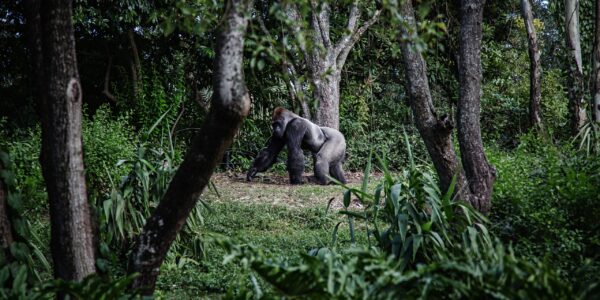On 23 July 2020, BaseClear organised a webinar to exchange thoughts on animal microbiome solutions, analysis and standardisation, which was attended by 70 participants from across the world, noticeably with 80% commercial partners. The online event was open for public after registrations and was chaired by Dr. Radhika Bongoni and Dr. Derek Butler.
Registrations were open at https://www.baseclear.com/webinars/webinar-solutions-analysis-standardization-in-animal-microbiome
The speakers included industry thought leaders and key players:

The presentations were followed by 30 minutes panel discussions with the speakers, including questions phrased directly by the participants. All the presentations were technical including unpublished data and future research. This document is the At the end of the day, all speakers were involved in concluding remarks with broad questions which will be stated under the ‘way forward’ section of this report. There was a surprise online pub quiz with 3 winners, closing the event with raising a virtual toast.
 Dr. Tadele Kiros kicked off the meeting by presenting on “The effect of a yeast probiotic (Actisaf Sc 47) supplementation on the performance and hindgut microbiota composition of piglets”. The presentation was based on a study that examined effect of live probiotic yeast supplement on the microbiota of suckling and weanling piglets. The development of the microbiome begins in early life. Originally, the “sterile womb” hypothesis posed that the infant microbiome is sterile until birth, when the infant inherits the mother’s microbiota. However, new findings suggest that colonization starts in the uterus and fluctuations in microbial composition are seen until after weaning. The period before weaning is seen as a window of opportunity for microbial manipulation. Dr. Kiros works to understand this window of opportunity in piglets. He discussed two studies that explored the effects of a yeast supplement in suckling and weanling piglets. In both studies, supplementation with yeast showed a different microbial composition when compared to the control group. In the weanling study, the cecum microbiome of the yeast supplemented piglets had more positively interacting bacteria than piglets who were given sterile water. Lastly, yeast supplementation was correlated with an increased performance in both suckling and weanling piglets. These studies show that yeast supplementation has an effect on the microbiome of piglets.
Dr. Tadele Kiros kicked off the meeting by presenting on “The effect of a yeast probiotic (Actisaf Sc 47) supplementation on the performance and hindgut microbiota composition of piglets”. The presentation was based on a study that examined effect of live probiotic yeast supplement on the microbiota of suckling and weanling piglets. The development of the microbiome begins in early life. Originally, the “sterile womb” hypothesis posed that the infant microbiome is sterile until birth, when the infant inherits the mother’s microbiota. However, new findings suggest that colonization starts in the uterus and fluctuations in microbial composition are seen until after weaning. The period before weaning is seen as a window of opportunity for microbial manipulation. Dr. Kiros works to understand this window of opportunity in piglets. He discussed two studies that explored the effects of a yeast supplement in suckling and weanling piglets. In both studies, supplementation with yeast showed a different microbial composition when compared to the control group. In the weanling study, the cecum microbiome of the yeast supplemented piglets had more positively interacting bacteria than piglets who were given sterile water. Lastly, yeast supplementation was correlated with an increased performance in both suckling and weanling piglets. These studies show that yeast supplementation has an effect on the microbiome of piglets.

The next presentation by Dr. Ali May was titled, “Illuminating the dark dung: why we should all use animal-specific microbiome databases”. Dr. May is a Product Manager Bioinformatics at Baseclear and during his talk, he discussed integration of taxonomic databases. First, he promoted the use of shallow shotgun sequencing in animal microbiome studies. Compared to amplicon sequencing, shotgun sequencing gives multi-domain coverage, species-level information, and can be used to conduct functional analyses. Shallow shotgun sequencing involves sequencing samples at a lower depth of reads than shotgun sequencing, but was shown to provide the same information content in adult samples from the Human Microbiome Project. To find whether this is also true in the animal microbiome, Dr. May sequenced samples from a chicken, pig, and cow. He found that shallow sequencing generally gives the same information as deep sequencing, but ran into a problem in the analysis. The public taxonomic databases that were used to map sequencing reads were incomplete. This led to a majority of reads in pig and cow to remain unclassified; Dr. May calls these reads the “dark dung”. Integrating the public databases with published databases for specific animals showed an increase in classified reads for both pig and cow. Due to the incompleteness of current databases, Dr. May suggests to integrate databases and to use existing animal-specific microbiome databases if they are available.
Dr. Joshua Claypool presented on “Get your tickets to the FAIR”, an online data management platform that aims to make all animal microbiome data Findable, Accessible, Interoperable, and Reusable. Unlike the human microbiome data world, the data published from animal microbiome studies is not regulated. Not only does this make data difficult to reuse, it also hinders the core and ideal scientific process of reproducibility. Dr. Claypool is leading FAIR in building domain specific standards, including a metadata vocabulary to condense terms that describe the same processes. Already existing and also new ontologies will be used in this process. The overall goal of the FAIR data project is for companies and academic researchers to communicate effectively.
Panel discussion highlights
Many challenges remain in the animal microbiome research world. Some of the problems and questions discussed in the meeting were:
- Reusable data: Dr. Claypool discussed that research practices are not standardized in a way that would allow data to be reused or reproduced. The FAIR animal microbiome data project would help to standardize procedures so all researchers can communicate more effectively. One big remaining question was: How can researchers be incentivized to adhere to these practices when it may not benefit them immediately?
- The production of data and its analysis: Dr. May pointed out that current standards of microbiome analysis, such as using amplicon sequencing, may not be most effective. Saving research money and moving towards more informative forms of analysis is a priority.
- The use of incomplete taxonomic databases: Dr. May discussed the importance of integrating databases and more so, using animal-specific databases to obtain the best mapping of reads.
- Measuring bacterial concentrations: Many microbiome studies investigate the relative abundance of bacteria in a composition. Although bacteria interact and their relative abundances are informative of some conditions, the concentration of bacteria may also be indicative. Future studies should measure bacterial concentrations to better understand the communities under question.
Upcoming Experts Meetings
BaseClear routinely organises experts meeting and this meeting will have a follow edition. We look forward to see what progress will have been made. For the complete overview of BaseClear’s Experts Meetings, visit https://www.baseclear.com/experts-meetings/ and follow us on LinkedIn (https://www.linkedin.com/company/baseclear) to keep up to date.
Acknowledgement:
Ms. Jolanta Szkodon, University of Amsterdam and Vrije University for contribution via notes.
Related items


 Dr. Tadele Kiros kicked off the meeting by presenting on “The effect of a yeast probiotic (Actisaf Sc 47) supplementation on the performance and hindgut microbiota composition of piglets”. The presentation was based on a study that examined effect of live probiotic yeast supplement on the microbiota of suckling and weanling piglets. The development of the microbiome begins in early life. Originally, the “sterile womb” hypothesis posed that the infant microbiome is sterile until birth, when the infant inherits the mother’s microbiota. However, new findings suggest that colonization starts in the uterus and fluctuations in microbial composition are seen until after weaning. The period before weaning is seen as a window of opportunity for microbial manipulation. Dr. Kiros works to understand this window of opportunity in piglets. He discussed two studies that explored the effects of a yeast supplement in suckling and weanling piglets. In both studies, supplementation with yeast showed a different microbial composition when compared to the control group. In the weanling study, the cecum microbiome of the yeast supplemented piglets had more positively interacting bacteria than piglets who were given sterile water. Lastly, yeast supplementation was correlated with an increased performance in both suckling and weanling piglets. These studies show that yeast supplementation has an effect on the microbiome of piglets.
Dr. Tadele Kiros kicked off the meeting by presenting on “The effect of a yeast probiotic (Actisaf Sc 47) supplementation on the performance and hindgut microbiota composition of piglets”. The presentation was based on a study that examined effect of live probiotic yeast supplement on the microbiota of suckling and weanling piglets. The development of the microbiome begins in early life. Originally, the “sterile womb” hypothesis posed that the infant microbiome is sterile until birth, when the infant inherits the mother’s microbiota. However, new findings suggest that colonization starts in the uterus and fluctuations in microbial composition are seen until after weaning. The period before weaning is seen as a window of opportunity for microbial manipulation. Dr. Kiros works to understand this window of opportunity in piglets. He discussed two studies that explored the effects of a yeast supplement in suckling and weanling piglets. In both studies, supplementation with yeast showed a different microbial composition when compared to the control group. In the weanling study, the cecum microbiome of the yeast supplemented piglets had more positively interacting bacteria than piglets who were given sterile water. Lastly, yeast supplementation was correlated with an increased performance in both suckling and weanling piglets. These studies show that yeast supplementation has an effect on the microbiome of piglets.


